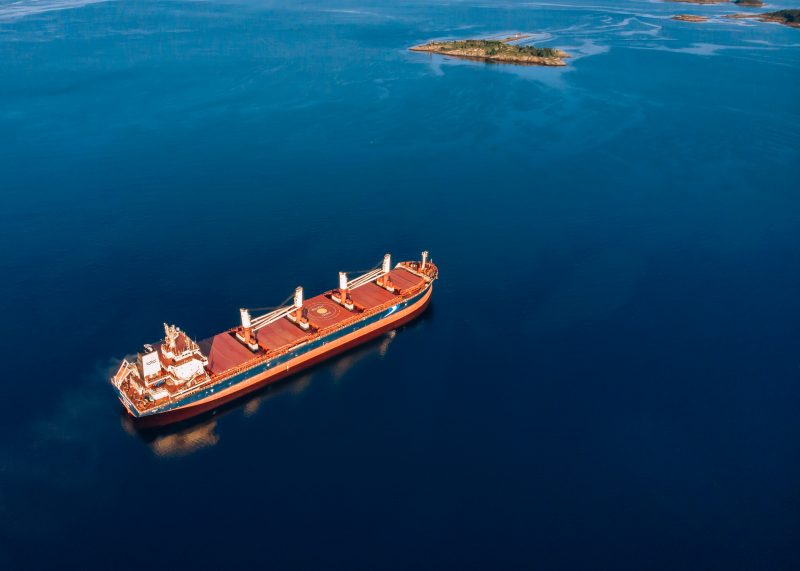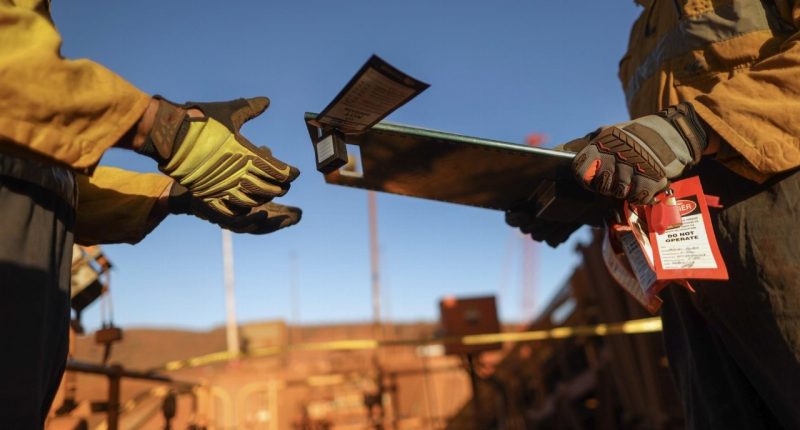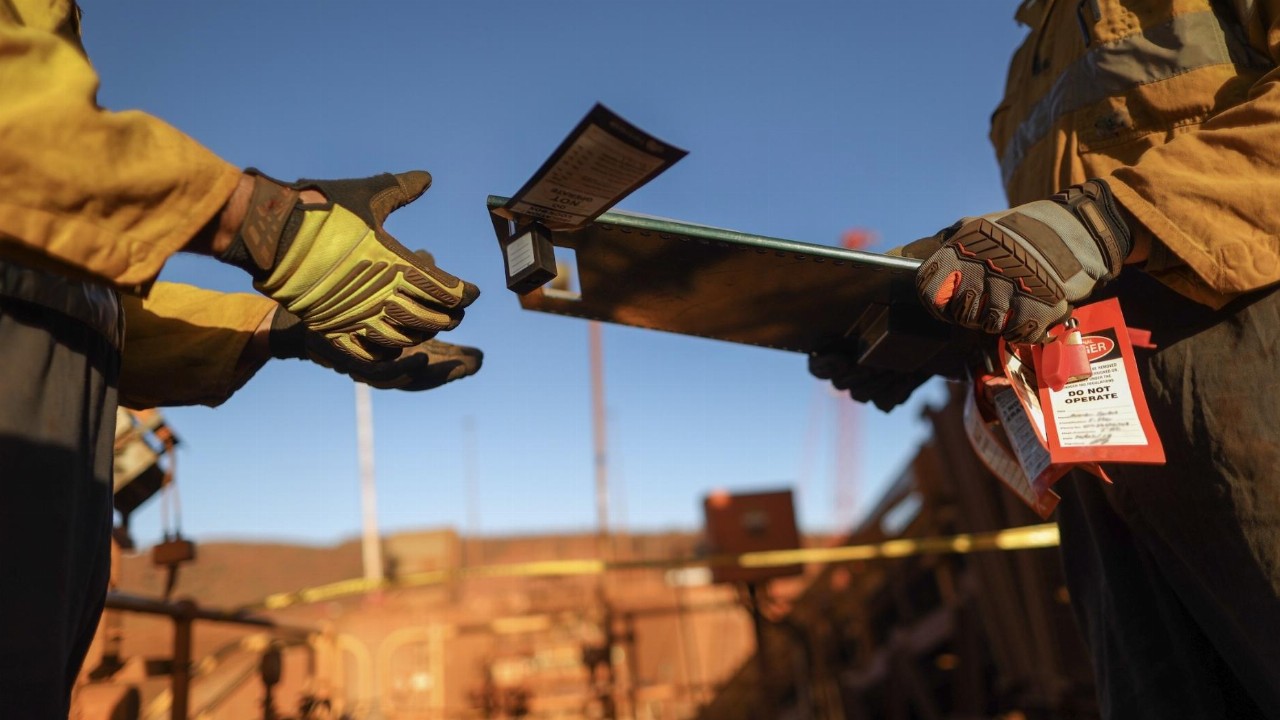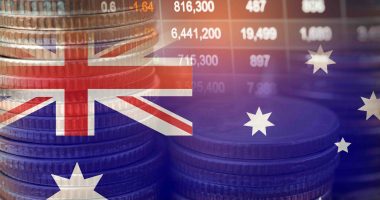Australia has strong international trade ties with the Middle East and when geopolitical tensions arise there, knock-on effects have a global reach. Australia is not immune.
The terrorist disruptions to cargo shipping in the Red Sea is taking a toll on both the cost of goods sold and freight time, with the route responsible for some $60 billion in Australian imports each year. The disruptions contribute to inflation and cost of living problems.
Geopolitical tensions affecting international trade can introduce volatility and uncertainty into the ASX, influencing investor behaviour through fluctuating commodity prices, currency exchange rates, and government policies. Uncertainty around the volatility of the situation scares many share market investors.

What happens over there matters over here.
The simmering Middle East tensions and Russia’s ongoing attack on Ukraine have seen gold back in the spotlight. Central banks around the world have been stockpiling the alloy as a hedge against inflation, and as conflicts yield that uncertainty.
Prices for the precious metal were up 6.26 per cent in 2023.
Meanwhile, critical minerals including copper, are also in demand for different reasons, they’re vital to the global green energy transition. According to McKinsey, global electrification is expected to increase annual copper demand to 36.6 million tonnes.

One tonne of copper brings functionality to about 40 cars, powers 100,000 mobile phones, enables operations in 400 computers and distributes electricity to up to 30 homes.
Solar power systems also contain 5.5 tonnes of copper per megawatt of capacity.
Interestingly though, nickel, which is also used in EVs, is having a dreadful price run, leading to the shutdown of a number of mining operations in Australia in the past few weeks.
But let’s head back to the Middle East, which is the source of 32.8 per cent of the world’s oil and 29.1 per cent of the global gas supplies, according to The Australian Institute of International Affairs.
Focus fading from oil alone
These supply figures are likely to drop this year with Saudi Arabia’s commitment to decreasing oil production for its “Vision 2030” – a focus more on renewable energy investments.
The drop in oil production output, which began toward the end of last year, has seen the global price of oil inflate 30 per cent as of September 2023, purely due to supply and demand dynamics, according to Forbes.
In 2021, Saudi’s government increased its capacity to generate renewable energy by 21 per cent, and just this month it announced the Kingdom was doubling its estimate of the country’s mineral wealth to US$2.5 trillion (A$3.8 trillion). That’s what’s really interesting here.
If these economies tilt away from oil, what have they got? Well it would seem, quite a lot.
With the move to renewables and the threat of escalating tensions, the Middle East is keen to build its stake in other markets for other commodities.
Middle Eastern mining
There are Australian Stock Exchange companies developing projects in the Middle East, attracted by the region’s notable mining achievements in recent years.
The Middle East is home to resources vital to global economies, including phosphates, potash, limestone, marble, kaolin and salt, as well as fertilisers.

The United Arab Emirates (UAE) is Australia’s largest trade and investment partner in the Middle East. In 2022, the two-way goods and services trade between the UAE and Australia amounted to $9.3 billion, according to the Department of Foreign Affairs and Trade. It’s rich in gold and diamonds.
The GolGohar Iron Ore Mine in Iran, owned by local company Golgohar Mining and Industria, achieved an estimated production of 24.169 million tonnes of iron ore in 2020.
Saudi Arabian stock-exchange-listed company, Ma’aden, has an extensive portfolio of critical minerals and boasts a strong market cap of $A69.7 billion, thanks partly to the Saudi Government’s 50 per cent stake in the company.
It’s the largest and fastest-growing mining company in the world and the Middle East, with Saudi Arabia home to around $1.3 trillion worth of unexplored mineral assets.
Saudi Arabia has abundant precious metals including gold and silver, along with crucial industrial metals such as aluminium, iron, copper, zinc, manganese, tantalum and chromium.
Jordan is aiming to become a major global supplier of minerals for renewable energy technologies like solar panels and wind turbines, with significant deposits of phosphate and rare earth minerals. ASX-listed base metals, gold and copper explorer, Metal Bank (ASX:MBK), has its focus there.
Oman also has a long list including copper, gold, chromium, iron, gypsum, clay, silica, and kaolin.
Expert analysis of Middle East investment
Middle Eastern Senior Research Analyst from financial service Equiti, Farah Mourad, spoke to The Market Online on the potential of investing in the Middle East.
“While some, like Saudi Arabia, Qatar and the UAE, heavily depend on energy exports, others, such as Jordan, Egypt and Lebanon, are depending on tourism, financial services, and other high-stakes sectors. It’s a financial landscape with various players,” she said.
Ms Mourad said non-oil trade in the region had surged, with Saudi Arabia’s ‘Vision 2030’ triggering a plus-330 per cent surge in foreign direct investment.
Governments were keen to attract businesses to return to the Middle East, with programs including Saudi Arabia’s Regional Headquarters program and the Gulf Cooperation Council which offered friendlier tax laws and a dynamic regulatory landscape.
“Traditional western allies are no longer the only main partners, ‘rivals’ like Russia and China are also maintaining and growing their relationships and trades with the GCC (Gulf Cooperation Council),” Ms Mourad said.
So how can investors capitalise on the advantages the region has to offer?
Let’s explore one example
Metal Bank
Metal Bank has projects across North Queensland, Western Australia and Jordan in the Middle East, with a strong focus on copper.
Last July, the company entered the Middle East via two agreements with the Jordan Ministry for Energy and Mineral Resources (MEMR), granting it exploratory rights for two areas called Malaqa and Wadi Araba.
Metal Bank secured first-mover advantages on these mining concessions, which intersected copper mineralisation throughout the December 2023 quarter.
Recently, the company reported that it had extended its outcropping copper oxide zone to more than 800 metres in strike at a prospect in its Malaqa project.
Channel sampling in the area returned results of 26 metres at 0.79 per cent copper and six metres at 0.97 per cent copper, with encouraging outcrop rock chip results.
Exploratory drilling remains a top priority for this area, with copper grades hitting up to 4.35 per cent.
MKB reported it was working with the Ministry of Energy and Mineral Resources to secure an Exploration Agreement over this area.

The Middle East factor
The International Monetary Fund forecasts robust GDP growth of six per cent in the Middle East, significantly surpassing the one per cent growth forecast for ‘advanced’ economies, including Australia.
What’s more, successful investors in the region have witnessed impressive returns from top-performing funds over the last five years.
Ms Mourad said investing is always a mix of risk and opportunity, and the Middle East offers another opportunity for increasing diversity in an investment portfolio. It is a region with significant commodities and proximity to wider world markets.








